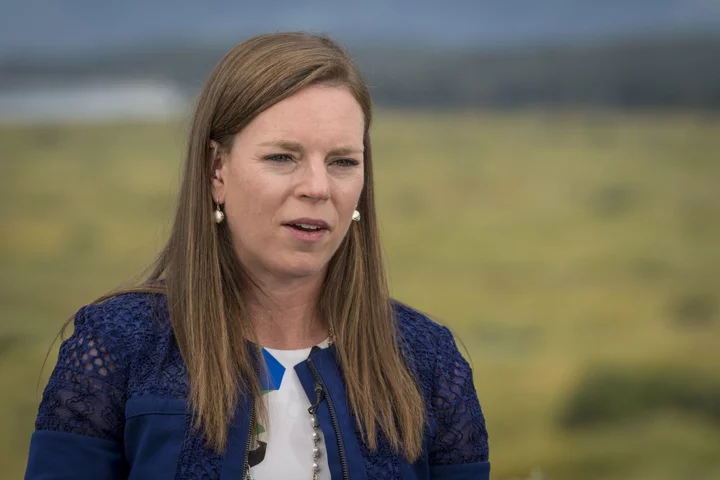
BOE’s Greene Sees Risk of 1970s-Style Crisis From Climate Change
Bank of England rate-setter Megan Greene said the economic impact of climate change could be on the scale
1970-01-01 08:00
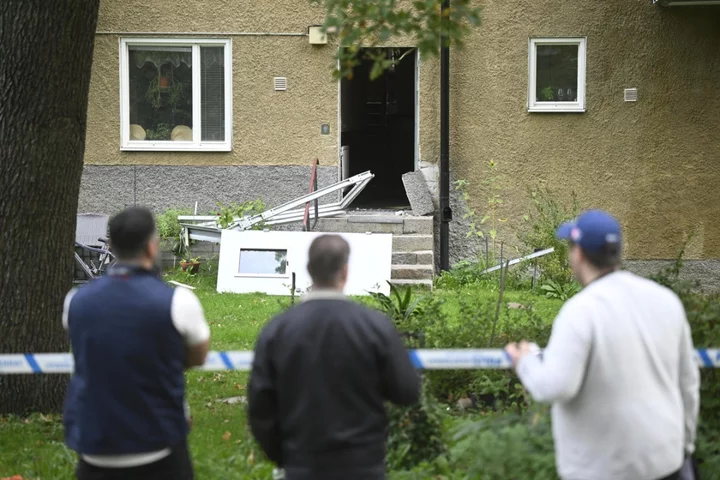
Child soldiers, executions, bombs: Deadly gang violence grips Sweden
Linda, a Swede in her forties, is standing in the doorway with her children. She looks visibly upset and tired. “I didn’t sleep much last night, I can’t take it anymore,” she tells The Independent. “The murders, the bombs, the constant police presence on the ground and police helicopters in the air. Me and my children need to get out of here. We need to move.” Linda lives in a block of flats in Hasselby, a suburb west of Stockholm, where a bomb exploded on September 25. Now, the day after, there is debris and broken glass everywhere. The bombed-out apartment next door is cordoned off. Police are still searching the premises. “I was in my home on Monday night,” says Linda. “Luckily, the children were not home yet. I heard a massive blast and then loud screaming. I ran into the street and could hear the moans of a man inside the flat that had been hit. Police arrived and took him and two other injured away.” The bloody gang war in Sweden has further intensified this week, with 11 killed this month alone. On Wednesday evening, a 20-year-old woman died in Uppsala, north of Stockholm, after an explosion ripped through the house she was staying in. She was not connected to the feud. Two young men also died from their wounds after being shot south of the capital. ‘It’s like a war zone’ Like several others in Hasselby, Linda doesn’t want her family name published in the newspaper. There is a fear of reprisals from the violent gangs that terrorise many Swedish cities. In 2022, there were 391 shootings in Sweden, 62 of which were fatal, making Sweden the gun murder capital of Europe. “I am not so worried about my girls, but I do worry about the boys. My oldest is thirteen. I need to protect him. He can’t get involved in this terrible gang war,” says Linda. Hasselby Strand mainly consists of modern flats, highrises, and other three-storey buildings like Linda’s. Children are playing football on the floodlit pitch a few hundred metres away. A father and his son are out walking their dog. “Hasselby was a wonderful place to live, only 30 minutes from the centre of Stockholm. Here we have the sea, it is green and leafy, and we used to love it here. I have lived in Hasselby Strand since 1995, but then the foreigners started coming,” Erik Petterson tells The Independent. “Don’t get me wrong, I am not a racist, but there is no way around it. The trouble started when more and more migrants came to Hasselby. Now it is like a war zone. It is like a bad dream, a nightmare.” The story repeats itself in most Swedish cities. Almost every day, there are new stories from the brutal gang war. The uneasiness in talking about migrants and foreigners is notable when speaking to locals in Stockholm. Sweden was, for many years, one of the most welcoming countries in Europe in opening its borders to migrants. The number of foreigners has increased dramatically. In 2012, 1.47 million inhabitants had been born outside Sweden. This number increased to 2.15 million by 2022. Foreign-born citizens made up around 20 per cent of the population of Sweden in 2022, according to Statista, quoting figures from Sweden’s statistics office. “Now, everything has changed. Sweden has changed. I don’t recognise the Sweden I knew anymore. And the violence seems to be spreading everywhere. It feels like it is getting closer and closer,” says Katarina Lindgren, a woman walking with her friend in central Stockholm. Blaming migration ‘an oversimplification’ Politically, Sweden has taken a sharp turn to the right. In the 2022 general election, the nationalist right-wing populist party, the Sweden Democrats (SD), got 20 per cent of the vote, becoming Sweden’s second-biggest party. SD is backing the centre-right coalition government through a supply and confidence deal. SD is strictly anti-immigration, and Sweden is tightening its migration policies dramatically in line with the hardline stance taken in neighbouring Denmark with some of Europe’s most restrictive migration laws. However, according to Manne Gerell, a leading Swedish criminologist from Malmo University, the clampdown on migration to solve the gang wars is a politically motivated oversimplification. “There is no doubt that immigration and bad integration are part of the problem, but it is not the whole story. Look at Germany, for instance. They have received a lot of migrants recently, but there is no rise in gun violence there. If it were a simple linear equation that more migrants equals more violence, you would expect German gun violence to follow the pattern of Sweden, but it is not,” he tells The Independent. Surprisingly, part of the explanation for the spread of gang violence in Sweden might lie in a successful police operation. In 2020, French police broke the codes of criminal communications network EncroChat. This enabled police all over Europe to follow crimes and the people behind them online in real time, leading to thousands of arrests across Europe. More than 400 criminals in Sweden were arrested. The resulting convictions saw sentences totalling more than 1,500 years in prison. The head of the Swedish gangs was, so to speak, cut off, but the outcome was not what was expected. “Instead of the underworld calming down, the arrests led to chaos, where very young gang members are now fighting for dominance of the lucrative drugs market. The fact that there is no real mafia tradition in Sweden means there was no one to put the lid on the kettle, and now we have headless chickens running around with automatic weapons shooting each other,” says journalist Diamant Salihu, who has written several books about the escalating gang violence in Sweden. “Right now, we have child soldiers being used to shoot people and plant deadly explosives. There is a war between two rival gangs, but also a war between the leaders of one gang [the Foxtrot network], where one of the gang leaders is in Turkey pulling the strings on who the child soldiers should target. The war has escalated so the child soldiers now go after family members and friends,” he says. In September alone, there have been dozens of incidents. A 13-year-old boy was found executed in the woods close to Stockholm, and the mother of a gang member was killed. Sweden’s justice minister, Gunnar Strommer, describes the escalation of the gang war as “domestic terrorism”. “There are many roots in the Swedish tree that are rotten,” says Mr Salihu. “Failed integration and segregation are to blame, but so is very ineffective policing. Only between 20–25 per cent of these gun crimes are solved. This makes it easier for the gangs to recruit more children and turn them into criminals and killers.” Swedish police say they are fighting an uphill battle against a ruthless enemy of the state. “The situation is reminiscent of low-intensive warfare,” says Jale Poljarevius, police chief and head of intelligence for the area surrounding Stockholm and Uppsala. “Organised crime groups [OCGs] are using military weapon systems [automatic guns], explosives and hand grenades. “If they can’t get to their target, they attack their families. Sometimes the attacks result in death or injured innocent victims, just like victims of war. “Since 2018 Sweden has the highest death rates in Europe, among the population of 15- to 29-year-olds.” Swedish peculiarity Gangs in Sweden used to be a regional problem, but it has turned into a national plague. Sweden used to be a very inclusive society, where almost everybody bought into the idea of togetherness in an egalitarian way. The state still plays an unusually controlling role in, for instance, keeping checks on how much alcohol its citizens consume. In Stockholm, most people wait for a green light before crossing the road, even when there are no cars. Everybody is supposed to play their part in the Swedish puzzle. But as more migrants came to Sweden, little was done to ensure they felt part of this society. In Hasselby, there is a part of town with big houses where the well-to-do, mostly white Swedish people, live and another that is much poorer. According to Lisbeth, who The Independent talks to on the train to Hasselby, the two rarely mix. “Both the Conservatives and the Social Democrats who have governed Sweden for decades have been passive bystanders to an ever-evolving problem of segregation and lack of integration. Maybe it is not the migration, but the lack of planning for a new society that is the culprit,” said Mr Salihu, who himself has Albanian roots. The Scandinavian model of a fair and progressive society has been exported to countries worldwide and was, for instance, a big inspiration behind Tony Blair’s New Labour movement. But the Swedish model is now under threat from within. For Linda and her children in Hasselby, the only way is out. “I don’t know where we will go”, she says, “but I can’t live like this. Before the bomb we had a murder in our highrise. This is no longer a good place to live.” Read More Three killed in shootings and explosion in Sweden as deadly gang feud escalates A shooting in a pub in Sweden has killed 2 men and wounded 2 more, police say. Teenager is latest victim in spate of deadly shootings across Sweden Three killed in shootings and explosion in Sweden as deadly gang feud escalates ‘National retrofit mission’ urged to better insulate Britain’s leaky homes Deadly violence continues in Sweden. 3 people killed in overnight shootings and an explosion
1970-01-01 08:00
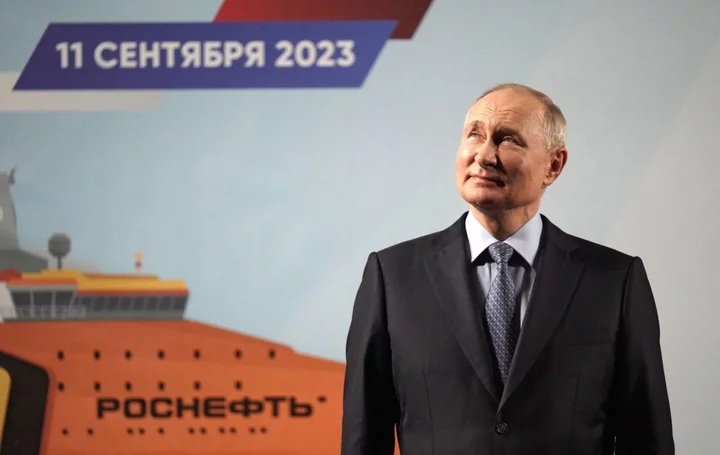
Putin’s shameless UN charm offensive - with stolen grain from Ukraine
A desperate Vladimir Putin, increasingly isolated on the world stage, is eyeing a return to the UN Human Rights Council – and he has launched a shameless charm offensive to get him there. Armed with stolen Ukrainian grain, the Russian president is on a mission to curry favour with potential backers ahead of a vote for council membership next month, although his efforts are likely to fall short. Two years after being kicked off the panel for invading its neighbour, Putin has ordered his diplomats to try and secure the backing of enough countries for Moscow to beat two other eastern European nations on 10 October. A Russian position paper circulated to dozens of other countries ahead of the vote strikes a markedly different tone to the nuclear threats and wartime sabre-rattling of Putin’s addresses since he invaded Ukraine, calling for “constructive mutually respectful dialogue” and referring to the 47-member Human Rights Council as “a key body in the United Nations system”. Russia is competing with Albania and Bulgaria to win one of two spots up for grabs on the council that are reserved for central and eastern European nations. Ironically one of the countries being replaced is in fact Ukraine – its and the Czech Republic’s terms are expiring. Moscow is going all out to try and reverse the April 2022 vote that saw it booted, experts tell The Independent. Then, 93 countries voted in favour of suspending Russia, while 24 voted against and 58 abstained. “Russia is apparently offering incentives such as grain and arms in exchange for votes. Along with other moves to deepen relations with Africa, we know that President Putin had already promised African states grain back in July at the Russia-Africa Summit,” says Yousuf Syed Khan, a senior lawyer at international human rights firm Global Rights Compliance. “At the same time, Russia is engaged in the systematic pillage of Ukraine’s grain, having rebuilt infrastructure to harness the ability to export millions of tonnes from occupied Ukrainian territory into Russia. This is not a coincidence,” the war crimes lawyer adds. Russia has been accused of weaponising global food security in its war against Ukraine, targeting key Ukrainian infrastructure with missile strikes while at the same time pulling out of a UN-brokered deal that had allowed Kyiv to keep exporting grain to other parts of the world where rising food prices are pushing more people into poverty. “The bottom line is that Russia is in no better standing to join the Human Rights Council now than it was nearly 18 months ago when it was voted off. In many ways, its bid to re-join and the outcome of the vote will be a barometer of Russia’s international standing,” Khan says. Alongside what it can offer in terms of trade, Khan says Russia will likely try to convince smaller countries that they do not want to be “instrumentalised to serve the political wills of Western nations”. “This logic may speak to some of the African States that Russia will desperately need to vote in its favour,” he tells The Independent. This tallies with the language in the position paper Russian diplomats have already distributed. The paper says Moscow “believes it is important to prevent the increasing trend of turning the Human Rights Council into the instrument, which serves political wills of one group of countries punishing non-loyal governments for their independent internal and external policy,” reported CNN. Alfred de Zayas, a former independent UN expert on human rights, says he believes the odds are stacked against Russia rejoining the council, despite the concerns voiced in recent days by Western officials. “At present, there are five eastern European states represented in the council – Czechia [the Czech Republic], Georgia, Lithuania, Montenegro and Ukraine. The terms of Czechia and Ukraine expire in December 2023. There are two openings but three candidates – Albania, Russia and Bulgaria,” he tells The Independent. De Zayas says that there was little in Russian foreign minister Sergei Lavrov’s recent comments at the UN General Assembly in New York to suggest a rapprochement with “the collective West” is any nearer. But at the same time, he argues that including Russia on multilateral platforms like the Human Rights Council is exactly what is needed to work towards peace talks to end the Ukraine war. “Maximum inclusiveness, bringing in as many countries as possible would be desirable, so that meaningful exchanges of ideas and perspectives could be conducted. Excluding Russia is counterproductive because it closes an important avenue of compromise and quid pro quo,” says De Zayas. “Precisely because there is a war going on, it is crucial to take advantage of every forum of dialogue,” he suggests. For Khan, however, Russia’s ongoing abuses in Ukraine are likely to see Putin’s charm offensive fall short. “Since the initial days of its full-scale invasion in February last year, Russia has been engaged in starvation as a method of warfare across Ukraine,” he says, recounting Moscow’s significant human rights violations during the conflict. “Unlawful conduct includes the laying of sieges to areas such as Chernihiv and Mariupol while denying access to even the most basic items required for civilian survival such as food, medicine and potable water. “More recently, we have seen Russia attacking grain ports along the Danube, forcing Ukraine to pivot to the Sulina Channel with its exports and to work with Romania, to elicit sanctions relief for Moscow. Russia also destroyed at least 270,000 tonnes of grain in late July and early August alone. None of this is being done with any valid military objective.” The latest report by Mariana Katzarova, the UN’s special rapporteur on Russia’s rights situation within its own borders, noted that rights have been on a “steady decline” over the last two decades but things have “significantly deteriorated since its invasion of Ukraine in February 2022”. Mass arbitrary arrests, detentions and harassment were recorded for “anyone speaking out against Russia’s war on Ukraine or daring to criticise the government’s actions,” the report found. The UN’s website says that “with membership on the [Human Rights] Council comes a responsibility to uphold high human rights standards”. “One would hope that all nations vote in line with the HRC membership criteria,” says Khan, who has worked with the UN for a decade on atrocity inquiries, adding that on this point Russia is falling far short. Read More Ukraine-Russia war - live: ‘Nuclear crisis’ warning over Putin-controlled power plant on the frontline Russia tries to rejoin UN Human Rights Council Russia ‘weaponised food and deliberately caused starvation’ in Ukraine Ukraine repels Russian attacks as Putin’s forces try to recapture territory lost in counteroffensive
1970-01-01 08:00

European Insurers Are Underwriting 30% of US Coal: Study
Some of Europe’s biggest insurers are underwriting close to a third of the coal production that takes place
1970-01-01 08:00
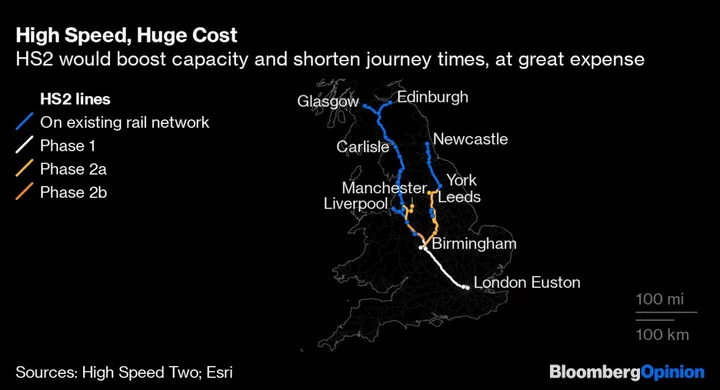
Sunak Refuses to Commit to UK HS2 Rail Project as Costs Rise
Prime Minister Rishi Sunak refused to commit to building the HS2 rail project’s northern leg, fueling speculation that
1970-01-01 08:00
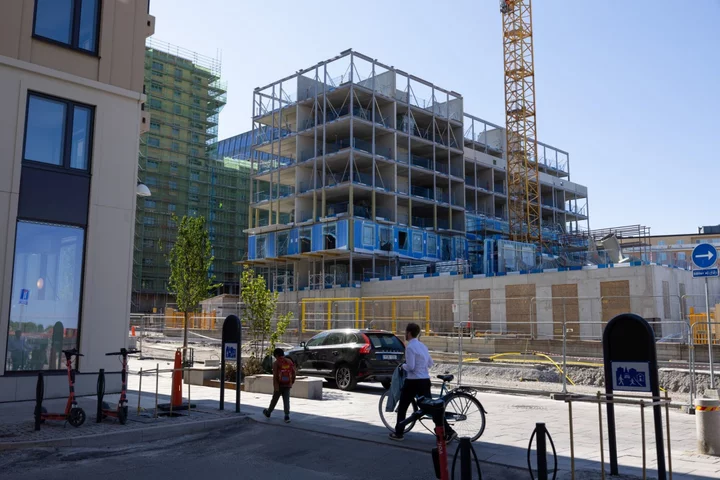
Scandinavian Construction Market Set to Slump, Builder Says
One of Scandinavia’s biggest contractors expects the region’s construction industry to undergo a two-year dive as high interest
1970-01-01 08:00
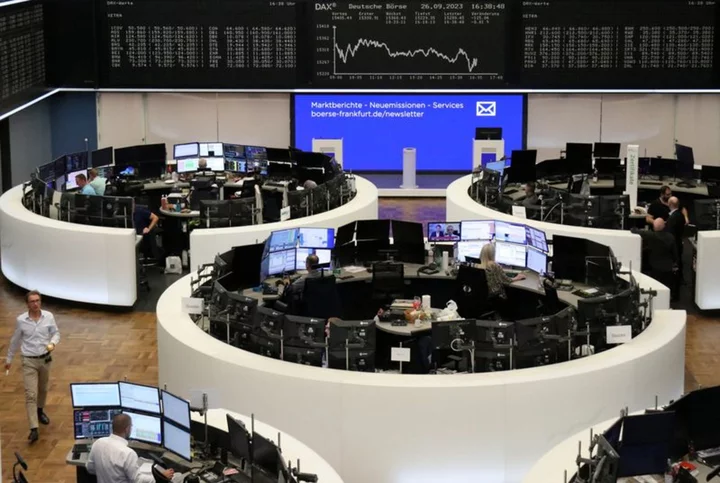
European shares inch up on energy boost
European shares edged higher on Thursday, supported by gains in energy stocks as oil prices rallied while investors
1970-01-01 08:00
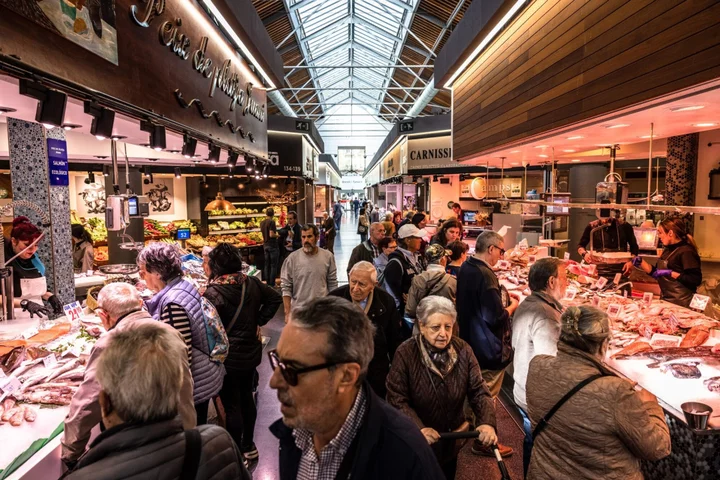
Spanish Inflation Quickens, Backing Higher-for-Longer ECB Rates
Spanish inflation accelerated for a second month, demonstrating the persistent price pressures that the European Central Bank’s higher-for-longer
1970-01-01 08:00
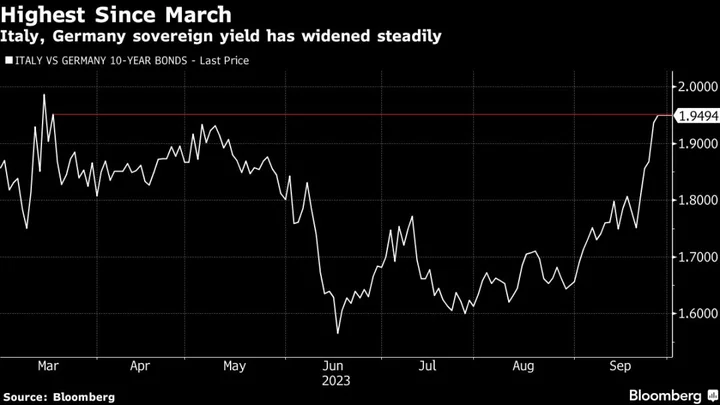
Italy Challenges EU by Using Deficit to Fund Election Vows
Italy will manage to bring its budget deficit below the limit set by the European Union only in
1970-01-01 08:00
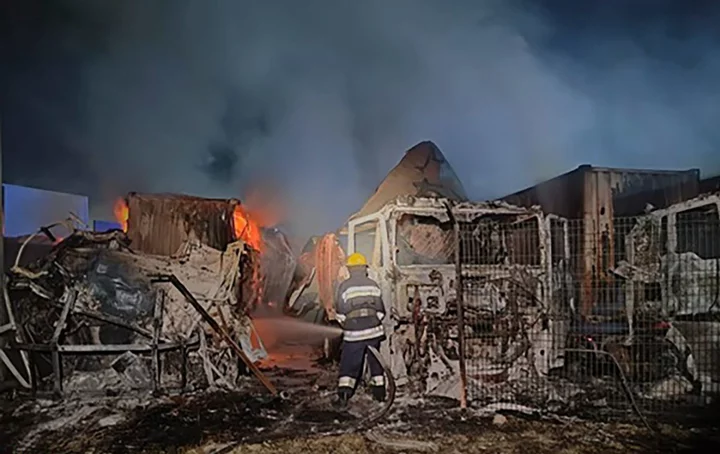
Ukraine war – live: Russia launches over 40 drones in overnight attack from Black Sea
Ukraine says its air defences shot down 34 kamikaze drones this morning and overnight as Russia launched a major new wave of air strikes across the country. Russia’s attacks involved at least 44 Iranian-made Shahed drones in total, according to Ukraine’s Air Force. “Fighter aircraft, anti-aircraft missile units and mobile fire groups were engaged to repel the attack,” Ukraine’s military said on Telegram. A large number of the drones were fired on southern Ukrainian cities from the Black Sea, the air force said. It comes as Kyiv said hundreds of fighters from the Wagner mercenary group have returned to Ukraine to fight in Russia’s continuing invasion for the first time since the group’s leader Yevgeny Prigozhin died in August. The Ukrainian military said it had seen “no significant impact” on frontline dynamics from Wagner’s return to the battlefield, however. Earlier, there were reports that a fresh offensive by Russia’s forces in the coming weeks is “unlikely”, according to British intelligence. Britain’s Ministry of Defence reported that patterns in Russian deployments suggest that Vladimir Putin’s troops are “overstretched” across the frontlines in Ukraine. Read More Viktor Sokolov seen for second time in newly emerged video as he claims Russia’s Black Sea Fleet ‘performing successfully’ New video of ‘dead’ Russian Black Sea fleet commander raises doubts over Ukraine’s claim Hillary Clinton mocks Putin over Nato expansion: ‘Too bad, Vladimir. You brought it on yourself’ Ukrainian forces ‘enjoy success’ near Bakhmut as Putin deploys reserves
1970-01-01 08:00
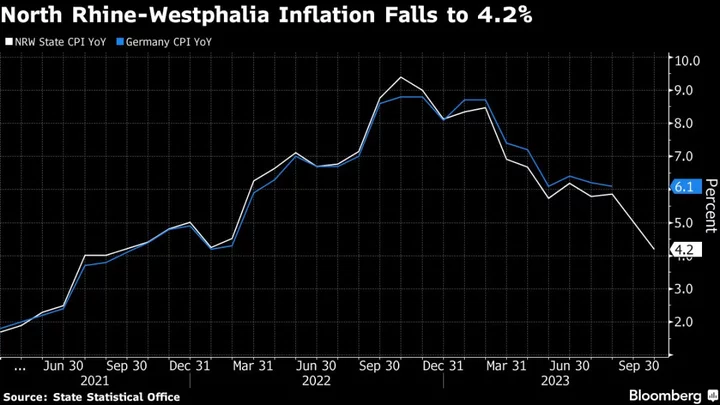
German State Data Points to National CPI Within Survey Range
Inflation in the German state of North Rhine-Westphalia fell to 4.2% on the year in September from 5.9%
1970-01-01 08:00
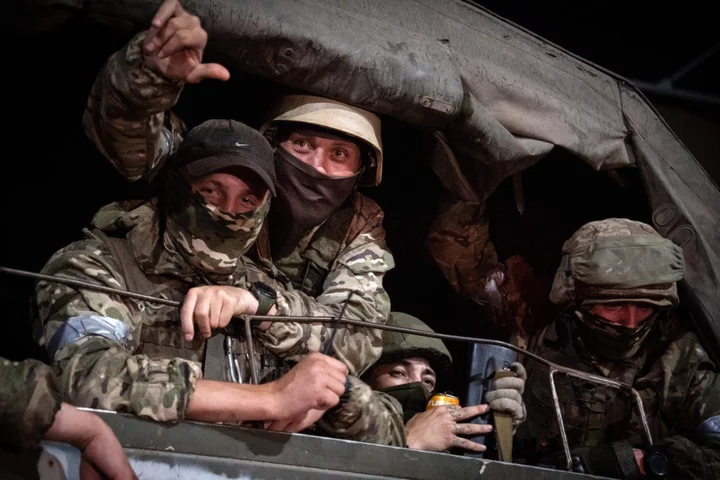
Ukraine says hundreds of Wagner fighters back on battlefield months after failed coup
Several hundred fighters of the Wagner mercenary group have returned to Ukraine to fight in Russia’s continuing invasion but have not made a significant impact on the battlefield, military officials in Kyiv said. "We have recorded the presence of a maximum of several hundred fighters of the former Wagner PMC (private military company)," spokesperson for the eastern military command Serhiy Cherevatyi said. These Wagner fighters were scattered in different places, were not part of a single unit, and had had no significant impact, he said. "They do not constitute any integral, systematic, organised force," the spokesperson said. "As they say – game over. These are pathetic remnants, nothing good awaits them here." The Independent has not verified the reports on Wagner’s return on the battlefield. If confirmed, this will mark the first ever comeback of Wagner in Ukraine after the death of its supreme leader Yevgeny Prigozhin in August. Russia’s Investigative Committee says it has confirmed Wagner chief Yevgeny Prigozhin was killed in a plane crash. On 23 August, Prigozhin’s private jet came down north-west of Moscow, killing all those on board. Video footage showed debris falling from the sky above Kuzhenkino in Russia, with pictures emerging of the wreckage. His right-hand man Dmitry Utkin was also on board the Embraer Legacy 600 jet, as well as five other passengers and three crew members. Russian military bloggers have reported that some Wagner fighters have been returning to Ukraine. The officials in Kyiv condemned the group on Wednesday once again and denied its existence. Ukrainian presidential adviser Mykhailo Podolyak said the group – comprising majorly of prison convicts – no longer existed. "Today, there are only former militants of the terrorist group who have scattered in all directions," he wrote on X, formerly known as Twitter. He said some had gone to Africa, some were dispersed through Russia, and some had contracts with the Russian Defence Ministry and were fighting in the Bakhmut sector. Reports of their return were intended to drown out news of Ukraine‘s recapture of two villages near Bakhmut, the official said. The mercenaries, responsible for carrying out Russia’s dirty work in Africa, also played a crucial role in Russia’s continuing invasion of Ukraine and handed Vladimir Putin one of Moscow’s biggest territorial feats by capturing the eastern city of Bakhmut in May. It came after one of the longest and fiercest battles of Moscow’s 19-month war in Ukraine. But after complaints of ammunition starvation, Wagner chief Prigozhin announced he and his fighters will leave Bakhmut after the battle. Some of them went to Belarus under a deal that ended a brief mutiny by Wagner in June, during which it took control of a Russian military headquarters and marched on Moscow. After Prigozhin’s death, the Kremlin has sought to bring the group under tighter state control. Read More Ukraine repels Russian attacks as Putin’s forces try to recapture territory lost in counteroffensive Ukraine-Russia war – live: Fresh offensive by Putin’s troops ‘unlikely’ as frontline ‘over-stretched’ A month after Prigozhin’s suspicious death, the Kremlin is silent on his plane crash and legacy Inside Ukrainian brigade’s battle ‘through hell’ to reclaim village from Putin’s troops on way to Bakhmut UK officially bans Russia’s Wagner paramilitary group as terrorist organisation
1970-01-01 08:00
